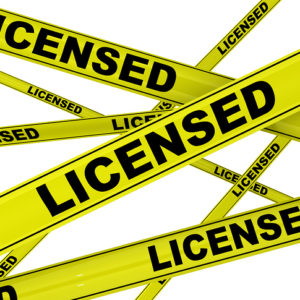More than 750 people now have jobs in Arizona because of universal occupational licensing.
In a report from the Goldwater Institute, after Arizona passed a bill last year that recognizes out-of-state occupational licensing, workers that moved into the Grand Canyon State were able to find work without having to retrain for a professional license.
While this is good news for Arizona, there are plenty of people still unable to work due to senseless regulations. As the other 49 states look for ways to improve their economies, they should implement universal licensing and by doing so embrace worker freedom.
While occupational licensing has lately been a burden for many, it hasn’t always been that way. For most of its history, occupational licensing has helped protect the public as some professions need workers to be properly trained.
For instance, in 1889, the Supreme Court upheld a West Virginia law that required physicians to be licensed, a naturally good thing as the profession carries a “life or death” risk. Yet, besides niche professions, occupational licenses were always a rare necessity, as by the 1950s only 5 percent of the workforce required one.
As time progressed, however, so did the red tape. Today, one in four workers need some sort of license. Unsurprisingly, with so many regulations, one estimate from the Institute for Justice reports that occupational licensing is costing the economy 2 million jobs. And, while there remain jobs, like medical professions, that should require licensing, many professions have been unduly burdened that neither help the public nor the worker.
Hairdressing, for instance, has been one of those professions that have been unjustly tangled up in regulations. Before Arizona’s reform, hairdressers were required to perform more than 1,000 hours in training and could be fined up to $2,000 for failing to operate without a license. Yet, the reason for why such tenuous requirements were required in the first place was thinly veiled at best, unless you count getting a bad haircut a “life and death” situation.
But it isn’t just hairdressing that’s been affected by unnecessary licensing requirements as cosmologists, contractors and even physical therapists were subject to similar restraints. In fact, thousands of Americans haven’t been able to find work due to occupational licensing.
On top of that, the barrier to entry also takes its toll on the economy. The Archbridge Institute found that occupational licensing in Iowa led to a “4.7% reduction in economic mobility and 10.9% increase in income inequality.” Unsurprisingly, occupational licensing prevents more “than 48,000 jobs and $287 million per year” in economic activity per year.
Despite its burdensome requirements on workers and drain on the economy, Arizona lawmakers were unwilling to change the system, until an unlikely hero came along.
In 2017, Juan Carlos Montes De Oca started to give free haircuts to the homeless, which prompted the Arizona board of cosmetology to try to stop him, claiming he posed a “real risk.” Thankfully, this caught the attention of lawmakers and in 2019, legislation passed in the state Senate repealing the excessive hairdressing requirements, along with a House measure that went a step further and recognized universal occupational licenses.
Now, not only will more hairdressers find work, but more than 750 out-of-state workers have been able to obtain an equivalent license in Arizona, causing other states to consider doing likewise. Currently in Oklahoma, a universal occupational licensing bill is now moving to the House floor for a vote, while in Ohio, the legislature introduced similar bills in both chambers late last year. This could be a sign that states are catching on that mindless regulations are causing job losses and are moving toward the right direction.
It is hoped this is the beginning, as thousands of jobs could be saved if all 50 states were to recognize universal occupational licenses.
The right to work is foundational to American principles. Providing universal occupational licenses fulfills this ideal while creating jobs and stimulating the economy. As Arizona has proved to the rest of nation, it doesn’t take much to lead toward prosperity, and the best way to start is by reducing government interference.
Now it’s time for states to go and do likewise.

